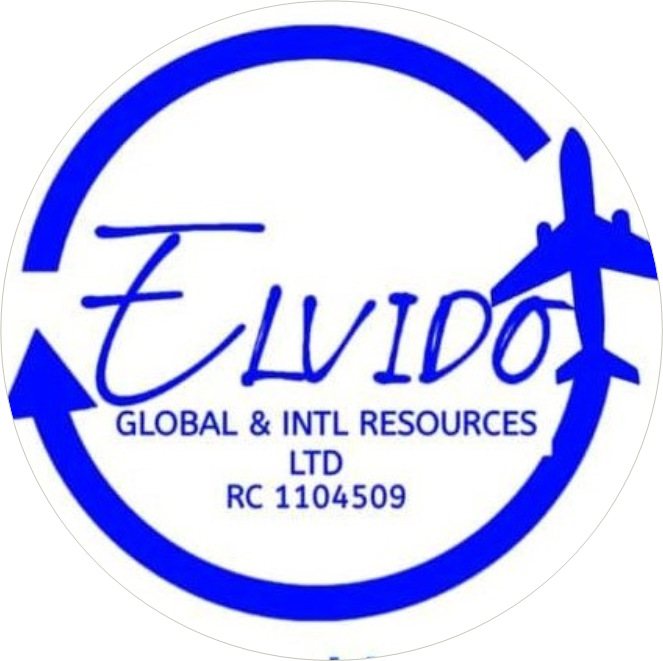 |
| Follow these proven steps to get Canadian Permanent Residence in 2025 without needing a job offer |
Introduction: Is a Job Offer Always Necessary for Canadian PR?
Many aspiring immigrants believe that securing a job offer from a Canadian employer is an absolute prerequisite for obtaining Permanent Residence (PR) in Canada. While a job offer can certainly boost your application, it's not always required! Canada offers several dynamic immigration pathways that allow skilled individuals to achieve Permanent Residence without one. If you're looking to make Canada your home in 2025, understanding these routes is your first crucial step.
Key Pathways to Canadian PR Without a Job Offer
1. Express Entry System (Federal Skilled Worker Program - FSWP)
The Express Entry system remains the fastest and most popular pathway for skilled workers seeking Canadian PR. Within this system, the **Federal Skilled Worker Program (FSWP)** is a prime example of a stream where a job offer is NOT mandatory.
Instead, your eligibility and ranking are determined by the **Comprehensive Ranking System (CRS)**. This points-based system evaluates candidates based on factors like:
- Your skills and qualifications.
- Education level (higher points for Master's/Ph.D. degrees).
- Proficiency in English or French (language test results are crucial).
- Relevant work experience.
- Age (highest points for applicants aged 20-29).
- Adaptability factors (e.g., Canadian relatives, spouse's education/language skills).
The higher your CRS score, the better your chances of receiving an Invitation to Apply (ITA) for PR.
How to Boost Your CRS Score Without a Job Offer:
To maximize your chances under FSWP, focus on improving factors within your control:
- **Language Test Results:** Aim for the highest possible scores in approved English (e.g., IELTS) or French (e.g., TEF) language tests.
- **Education & Certifications:** Consider pursuing more education or obtaining additional certifications. Ensure your foreign education is assessed via an Educational Credential Assessment (ECA).
- **Work Experience:** Gain more relevant skilled work experience.
- **Family in Canada:** Having a close relative (parent, grandparent, sibling) who is a Canadian citizen or PR can add points.
- **Provincial Nomination:** This is a game-changer!
2. Provincial Nominee Programs (PNPs)
Canada's Provincial Nominee Programs (PNPs) are a powerful alternative, with many provinces offering streams specifically designed for individuals who don't have a job offer but possess skills that meet the province's economic needs. Each province sets its own unique rules and requirements, often prioritizing candidates with certain educational backgrounds or work experience in in-demand jobs.
In 2025, provinces like Ontario (Human Capital Priorities Stream), Manitoba, Saskatchewan (International Skilled Worker), and Alberta (Express Entry Stream) are known to have active streams that do not require a direct job offer. However, you might need to show a connection to the province, such as previous study, family ties, or prior work experience there.
A provincial nomination is incredibly valuable, as it adds **600 points** to your Express Entry CRS profile, virtually guaranteeing an Invitation to Apply for Permanent Residence.
3. Canadian Experience Class (CEC)
If you've already gained temporary work or study experience in Canada, the **Canadian Experience Class (CEC)** could be your ideal pathway. This program allows individuals who have worked in Canada temporarily to apply for PR without needing a job offer at the time of application. It’s perfect if you've recently completed studies or gained skilled work experience on a valid work permit.
To qualify for CEC, you typically need at least 12 months of full-time (or equivalent part-time) skilled work experience in Canada within the last three years. Work done while studying (e.g., co-op terms, off-campus work) does not count towards the CEC requirement.
Crucial Documents You'll Need
Regardless of the pathway, certain key documents are almost always required:
- Valid passport.
- Language test results from approved tests (e.g., IELTS, CELPIP for English; TEF, TCF for French).
- Educational Credential Assessment (ECA) to verify your foreign education.
- Work experience letters from employers clearly describing your job duties, hours, and salary.
- Police Clearance Certificates from every country you have lived in for 6 months or more since age 18.
- Medical Exam results from an approved panel physician.
- Proof of funds to support yourself and your family upon arrival (unless exempt, like some CEC candidates).
Ensure all documents are clear, official, and translated into English or French if necessary.
Important Things to Avoid
To ensure your application is successful, steer clear of these common pitfalls:
- **Outdated Information:** Always verify information on the official Canadian immigration websites (IRCC – Immigration, Refugees and Citizenship Canada, and provincial government sites). Rules change.
- **Skipping Documents:** Never omit crucial documents like language test results, ECAs, or police certificates. These can cause delays or outright rejection.
- **Ignoring Deadlines:** Pay close attention to deadlines and expiration dates for documents like language tests and police clearances (often expire after 2 years or less).
Maximize Your Success in 2025
Canada's immigration landscape is dynamic, but permanent residence without a job offer is definitely achievable. By focusing on strengthening your profile, exploring all available pathways (especially PNPs), and meticulously preparing your application, you significantly increase your chances of success.
FAQ
Q1: Can I get Canadian Permanent Residence without a job offer?
A1: Yes, absolutely. Pathways like the Federal Skilled Worker Program (FSWP) under Express Entry, many Provincial Nominee Programs (PNPs), and the Canadian Experience Class (CEC) do not require a job offer.
Q2: What is the Express Entry system's Comprehensive Ranking System (CRS) score?
A2: The CRS is a points-based system used to rank Express Entry candidates based on factors like age, education, language proficiency, and work experience. A higher score increases your chances of receiving an Invitation to Apply (ITA) for PR.
Q3: How can I increase my CRS score without a job offer?
A3: You can increase your CRS score by improving your language test results, getting more education or certifications, gaining additional relevant work experience, or obtaining a provincial nomination.
Q4: Do Provincial Nominee Programs (PNPs) always require a job offer?
A4: No. While some PNP streams require a job offer, many provinces have streams designed for candidates with in-demand skills who do not have a pre-arranged job offer. A provincial nomination adds 600 points to your Express Entry profile.
Q5: What is the Canadian Experience Class (CEC), and do I need a job offer for it?
A5: The CEC is for individuals with at least 12 months of skilled Canadian work experience within the last three years. You do not need a job offer at the time of application for CEC, making it ideal for those who have worked or studied in Canada.
Q6: What are the most important documents for Canadian PR without a job offer?
A6: Key documents include a valid passport, language test results, Educational Credential Assessment (ECA), work experience letters, police clearance certificates, medical exam results, and proof of funds.



Do leave your comments